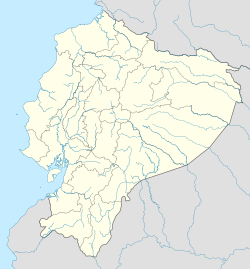Geometric standard deviation
This article needs additional citations for verification. (May 2016) |
In probability theory and statistics, the geometric standard deviation (GSD) describes how spread out are a set of numbers whose preferred average is the geometric mean. For such data, it may be preferred to the more usual standard deviation. Note that unlike the usual arithmetic standard deviation, the geometric standard deviation is a multiplicative factor, and thus is dimensionless, rather than having the same dimension as the input values. Thus, the geometric standard deviation may be more appropriately called geometric SD factor.[1][2] When using geometric SD factor in conjunction with geometric mean, it should be described as "the range from (the geometric mean divided by the geometric SD factor) to (the geometric mean multiplied by the geometric SD factor), and one cannot add/subtract "geometric SD factor" to/from geometric mean.[3]
Definition
If the geometric mean of a set of numbers {A1, A2, ..., An} is denoted as μg, then the geometric standard deviation is
Derivation
If the geometric mean is
then taking the natural logarithm of both sides results in
The logarithm of a product is a sum of logarithms (assuming is positive for all ), so
It can now be seen that is the arithmetic mean of the set , therefore the arithmetic standard deviation of this same set should be
This simplifies to
Geometric standard score
The geometric version of the standard score is
If the geometric mean, standard deviation, and z-score of a datum are known, then the raw score can be reconstructed by
Relationship to log-normal distribution
The geometric standard deviation is used as a measure of log-normal dispersion analogously to the geometric mean.[3] As the log-transform of a log-normal distribution results in a normal distribution, we see that the geometric standard deviation is the exponentiated value of the standard deviation of the log-transformed values, i.e. .
이와 같이 로그 정규 분포 모집단에서 추출한 데이터 표본의 기하학적 평균과 기하학적 표준 편차를 사용하여 산술 평균과 표준 편차가 정규 분포의 경계 신뢰 구간에 사용되는 방법과 유사한 신뢰 구간의 경계를 찾을 수 있다. 자세한 내용은 로그 정규 분포의 토론을 참조하십시오.

![\mu _{g}={\sqrt[ {n}]{A_{1}A_{2}\cdots A_{n}}}.\,](https://wikimedia.org/api/rest_v1/media/math/render/svg/508f552a91a91de85efb2bf6ffbe320eb74650f1)



![\ln \mu _{g}={1 \over n}[\ln A_{1}+\ln A_{2}+\cdots +\ln A_{n}].\,](https://wikimedia.org/api/rest_v1/media/math/render/svg/591ffbf9dcf9bea32c2b842ec8374f3ba928f6a0)









